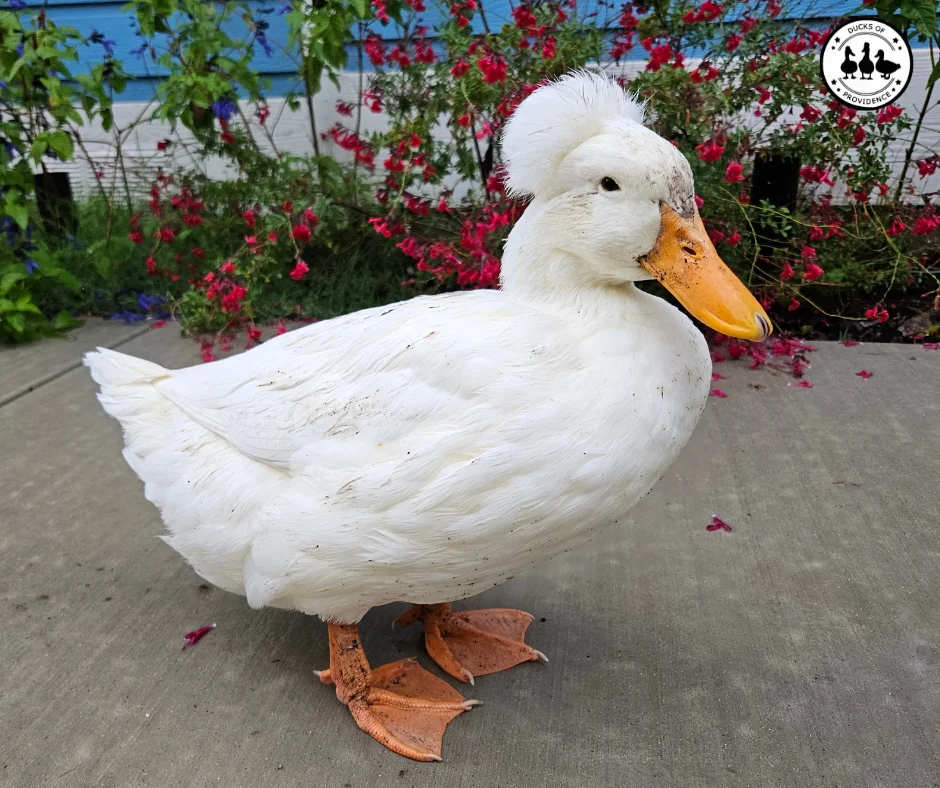
Quackonomics 101: Exploring Pet Duck Cost
Last updated on September 1st, 2024 at 08:32 pm
In this comprehensive guide, we’ll explore the financial aspects of duck ownership, highlighting the various expenses associated with providing a safe, comfortable, and enriching environment for our quacking companions. From the initial investment in essential equipment to ongoing maintenance and unexpected costs, we’ll equip you with the knowledge and insights needed to navigate the financial waters of duck care with confidence and clarity.
So, whether you’re a seasoned duck keeper looking to optimize your budget or a curious newcomer eager to learn more about the costs of duck ownership, join us on this educational journey as we unravel the mysteries and unveil the truths behind duck maintenance expenses.
Disclaimer: I may earn a commission if you buy products or services through my affiliate links. This will not affect the price you pay. I only recommend products or services that I believe will be beneficial to my readers.
The Cost of the Duck:
The first consideration is whether to start with adorable ducklings or to adopt adult ducks. Ducklings are irresistibly cute but require a bit more attention and specialized care, including a brooder setup with heat lamps and appropriate feed. On the other hand, adult ducks may come with a higher initial cost but require less intensive care from the get-go. The choice ultimately depends on your preference and availability.
1. Ducklings:
Ducklings are typically less expensive than adult ducks. On average, you can expect to pay between $5 and $50 for a duckling, depending on factors such as breed and where you purchase them. Common breeds like Pekins or Khaki Campbells might fall toward the lower end of this range, while rarer or specialty breeds like Crested or Runner ducks could be pricier.
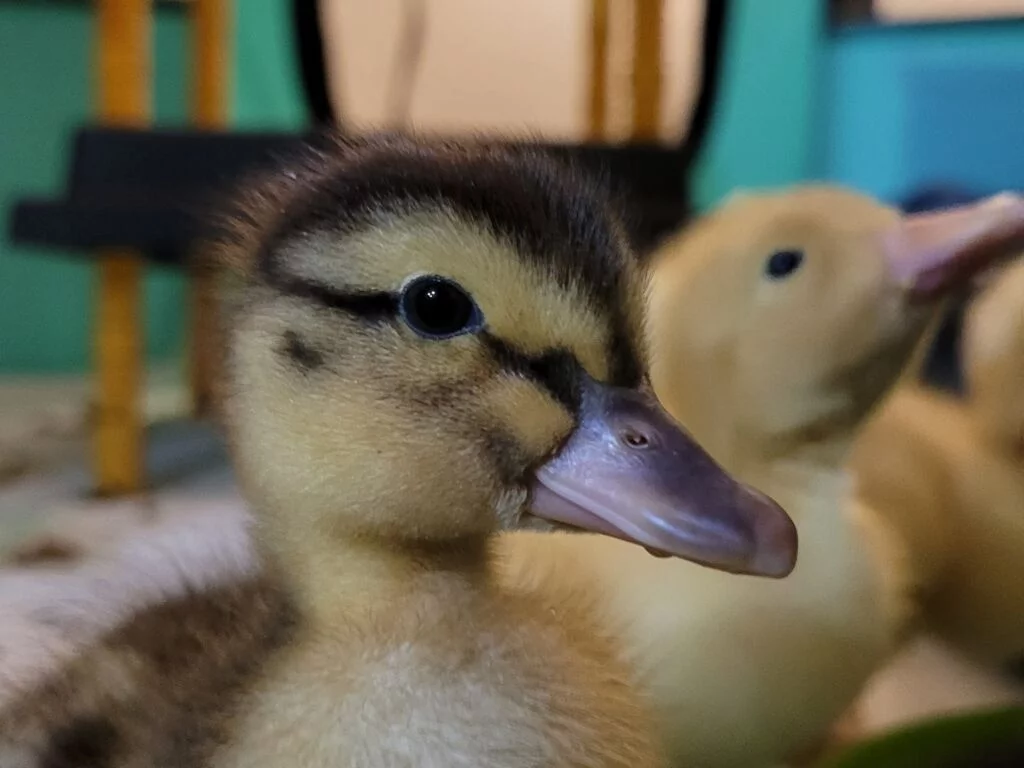
2. Adult Ducks:
Adult ducks generally cost more than ducklings due to their maturity and potential for egg-laying or breeding. The price for adult ducks can vary widely based on factors such as breed, age, and whether they come from a breeder, rescue, or local farm. Prices typically range from $10 to $100 or more for an adult duck, with rare or prized breeds commanding higher prices.
3. Factors Affecting Pet Duck Cost:
Several factors can influence the cost of ducks:
- Breed: Rare or specialty breeds with unique traits or characteristics may be more expensive than common breeds.
- Age: Ducklings are usually cheaper than adult ducks because they require more time and resources to raise to maturity.
- Source: Purchasing from a reputable breeder or specialty farm might result in higher costs due to quality assurance and breed standards. Adopting from a rescue or purchasing from a local farm or hatchery could be more affordable.
- Health and Quality: Ducks that come with health guarantees or specific qualities, such as show-quality birds, might command higher prices.
4. Additional Considerations:
It’s important to remember that the cost of acquiring a duck is just the beginning. While getting a duckling from a feed store for just $5 may be tempting, you should not underestimate how much they will cost you afterward. You’ll also need to budget for ongoing expenses such as housing, food, bedding, and veterinary care. These costs can add up over time and should be factored into your overall budget when considering pet duck ownership.
By understanding the various factors contributing to the cost of ducks and planning accordingly, you can make informed decisions that align with your budget and preferences. Whether you’re starting with ducklings or adopting adult ducks, investing in your feathered friends can bring joy and fulfillment to your life.

Pet Duck Guide
This is the BEST book about ducks I have ever had. I can highly recommend it to every duck owner, new or experienced. It is very comprehensive, with pictures and illustrations. It covers all topics related to duck care and keeping ducks. It even has multiple case studies.
Cost of the Initial Setup for your Pet Ducks:
First things first, setting up a cozy haven for your ducks is crucial. This includes a safe and spacious coop or shelter, fencing to create a secure outdoor area, bedding material, feeders, and waterers. Depending on your setup and the size of your flock, initial setup costs can range from modest to substantial. Careful planning and DIY savvy can create a comfortable environment without breaking the bank.
Here is a link to our Amazon Storefront, where we have compiled a list of useful items for the initial setup.

The cost of a duck coop and run can vary depending on several factors, including size, materials used, complexity of design, and whether you purchase a pre-made structure or build it yourself. Here’s a breakdown of the typical costs for a duck coop and run:
1. Duck Coop:
- Pre-Made Coops: Pre-made duck coops are available in various sizes and designs, ranging from basic models to more elaborate structures with additional features such as nesting boxes and ramps. The cost of a pre-made duck coop can range from $200 to $1000 or more, depending on the size and quality of the coop.
- DIY Coops: Building your duck coop can be cost-effective if you have the necessary skills and tools. The cost of materials for a basic DIY duck coop can range from $100 to $500, depending on factors such as size, materials used (such as wood or PVC), and any additional features you choose to include.
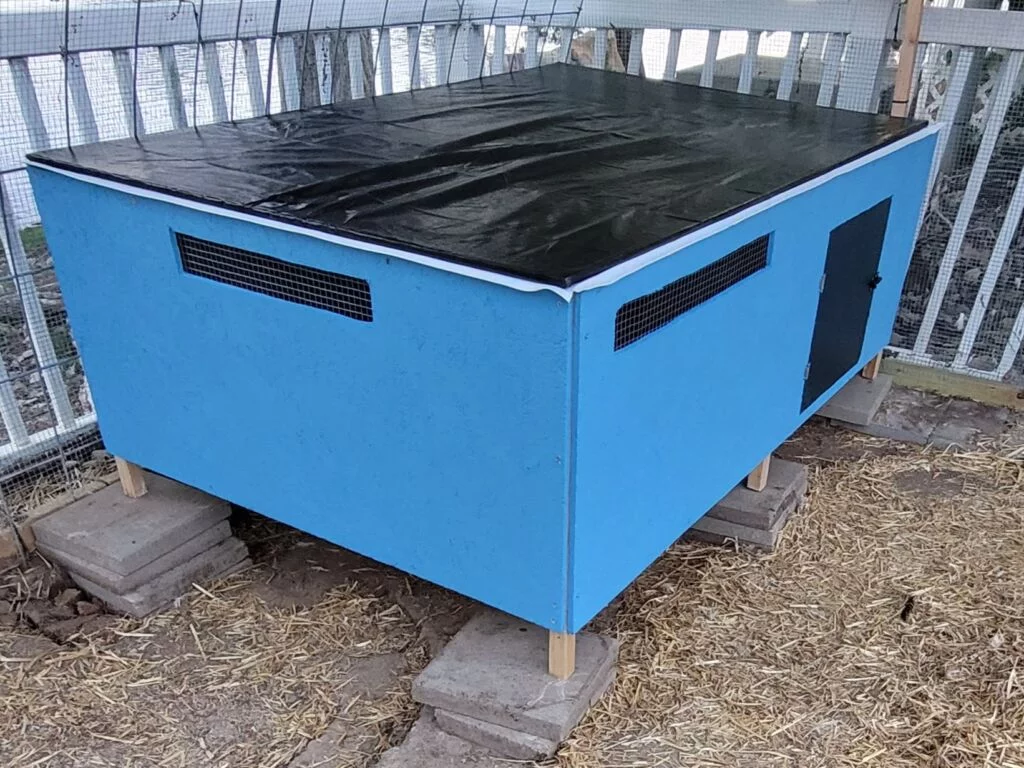
2. Duck Run:
- Fencing Materials: Duck runs typically require fencing to create a secure outdoor area where ducks can roam and forage safely. The cost of fencing materials can vary depending on factors such as the size of the run, the type of fencing used (such as chicken wire or hardware cloth), and whether you opt for pre-made panels or DIY installation. Budget around $100 to $300 or more for fencing materials for a small to medium-sized duck run.
- Additional Features: Depending on your preferences and the needs of your ducks, you may want to include additional features in the duck run, such as shelters, shade structures, water features, or cameras. The cost of these additional features will vary depending on the materials used and the complexity of the design.

Overall, the total cost of a duck coop and run can vary widely depending on your specific requirements and preferences. By considering factors such as size, materials, and additional features, you can determine the most suitable option for your budget and the well-being of your ducks.
3. Bedding Material:
Ducks need bedding material in their coop to provide insulation, absorb moisture, and create a comfortable resting area. Common bedding options include straw, hay, or wood shavings. The cost of bedding material will depend on the size of your coop and the type of bedding you choose. Expect to spend around $20 to $50 initially for bedding material, with ongoing costs for replacement as needed.
4. Feeders and Waterers:
Ducks always require access to fresh water and food. Invest in sturdy feeders and waterers designed specifically for ducks to ensure they have adequate nourishment. Prices for feeders and waterers vary depending on size, material, and design. Budget around $20 to $50 for a set suitable for a small flock.

5. Duck Pool or Pond
Providing a pool or pond for ducks is essential for their health and well-being, allowing them to engage in natural behaviors like swimming and foraging. Here are some options for duck pools or ponds, along with their estimated costs:
- DIY Pond: Building a DIY pond for your ducks can be cost-effective if you have the space and resources. You can create a simple pond using a liner like a heavy-duty pond liner or a livestock tank. The cost of materials for a basic DIY pond can range from $100 to $500 or more, depending on the size and depth of the pond and any additional features such as filtration systems or landscaping.
- Stock Tank Pool: A stock tank pool, typically used for livestock watering, can also serve as a duck pool. These tanks are durable and easy to set up, making them a popular option for duck owners. The cost of a stock tank pool can range from $100 to $300, depending on the size and material (galvanized steel or plastic).
- Pre-Made Duck Pool: Pre-made pools designed explicitly for ducks are available for purchase. These pools come in various sizes and designs, including molded plastic pools with built-in ramps or platforms. Depending on the size and features, a pre-made duck pool can cost from $50 to $200 or more.
- Natural Pond: If you have the space and resources, creating a natural pond for your ducks can provide an ideal habitat for them to swim and forage. Costs for a natural pond can vary widely depending on factors such as excavation, landscaping, and water circulation systems. Budget several thousand dollars or more for creating a natural pond, depending on its size and complexity.
- Kiddie Pool: For a budget-friendly and temporary option, a simple kiddie pool can serve as a duck pool. These pools are readily available at most department stores and are easy to set up and clean. The cost of a kiddie pool or pet pool typically ranges from $20 to $50, depending on the size and quality.

When choosing a pool or pond option for your ducks, consider factors such as space availability, budget, and your ducks’ specific needs and preferences. Providing access to a pool or pond is essential for keeping your ducks happy, healthy, and entertained.
➡️ Read more about Ducks and Water: Keeping Your Flock Happy and Healthy
Total Estimated Cost:
Adding up the estimated costs for the essential components of the initial setup:
- Shelter or coop: $100 – $1000+
- Outdoor enclosure: $50 – $300+
- Bedding material: $20 – $50
- Feeders and waterers: $20 – $50
- Miscellaneous supplies: $50 – $100
- Total: $240 – $1600+ (depending on factors such as size, quality, and additional features)
Remember that these are rough estimates; actual costs may vary based on location, materials used, and personal preferences. When setting up your ducks’ habitat, it’s essential to budget accordingly and prioritize their health and safety.
Cost for Raising Ducklings
Setting up for ducklings requires some specific considerations to ensure their safety and comfort during their early weeks. Here’s a breakdown of what you’ll need and an estimate of the costs involved:
1. Brooder Setup: Ducklings need a warm and secure space to live in their first few weeks of life. A brooder box or area serves as their temporary home until they’re ready to move outside. You can use a dog playpen, a plastic container, or a purpose-built brooder.
Estimated Cost: $30 – $60
2. Heat Source: Ducklings require a heat source to maintain their body temperature since they can’t regulate it well when they’re young. A brooder heater specifically designed for poultry is essential. Make sure to provide a temperature gradient within the brooder so ducklings can move closer or farther from the heat source as needed.
Estimated Cost: $50 – $60 (for a heat plate)

3. Bedding Material: Provide a soft, absorbent bedding material for ducklings to nestle in. Good options include pine shavings, straw, or paper towels. Avoid cedar shavings, as they can be harmful to young ducklings.
Estimated Cost: $5 – $10
4. Feeders and Waterers: Ducklings need constant access to fresh water and food. Use shallow waterers to prevent drowning accidents and ensure the feeders are easily accessible for the ducklings.
Estimated Cost: $10 – $20
5. Starter Feed: Purchase a starter feed formulated explicitly for ducklings. This feed provides essential nutrients for their growth and development. You can find starter feeds at farm supply stores or online.
Estimated Cost: $10 – $20 for a small bag
6. Thermometer: Use a thermometer to monitor the temperature inside the brooder and ensure it stays within the recommended range for ducklings, which is around 85-90°F (29-32°C) for the first week and then gradually decreasing by 5°F (3°C) per week until they are fully feathered.
Estimated Cost: $5 – $10
Total Estimated Cost for Duckling Setup: $90 – $160
Remember that these are rough estimates, and actual costs may vary depending on factors such as location, the quality of materials, and personal preferences. Providing a safe and comfortable environment for your ducklings is essential for their health and well-being as they grow. Read more in our post: How to Raise Ducklings: A Beginners Guide
Cost of Feeding and Nutrition:
Like any pet, ducks need a balanced diet to thrive. This includes a combination of commercial duck feed, fresh vegetables, and occasional treats. The cost of feeding your ducks will vary depending on factors such as the size of your flock, dietary preferences, and whether you opt for organic or conventional feed. Remember, providing nutritious food is an investment in your ducks’ health and well-being.
Feeding and nutrition are ongoing expenses when it comes to caring for ducks. Here’s an overview of the costs involved:
1. Commercial Duck Feed:
Ducks require a balanced diet to stay healthy, and commercial duck feed is formulated to meet their nutritional needs. The cost of pet duck feed can vary depending on factors such as brand, quality, and quantity purchased. On average, expect to pay around $20 to $30 for a 20-pound bag of commercial duck feed.
When purchased at farm supply stores, Purina Duck Feed costs around $22 per 40-lb bag, while Mazuri Waterfowl feed costs about $55 per 50-lb bag.
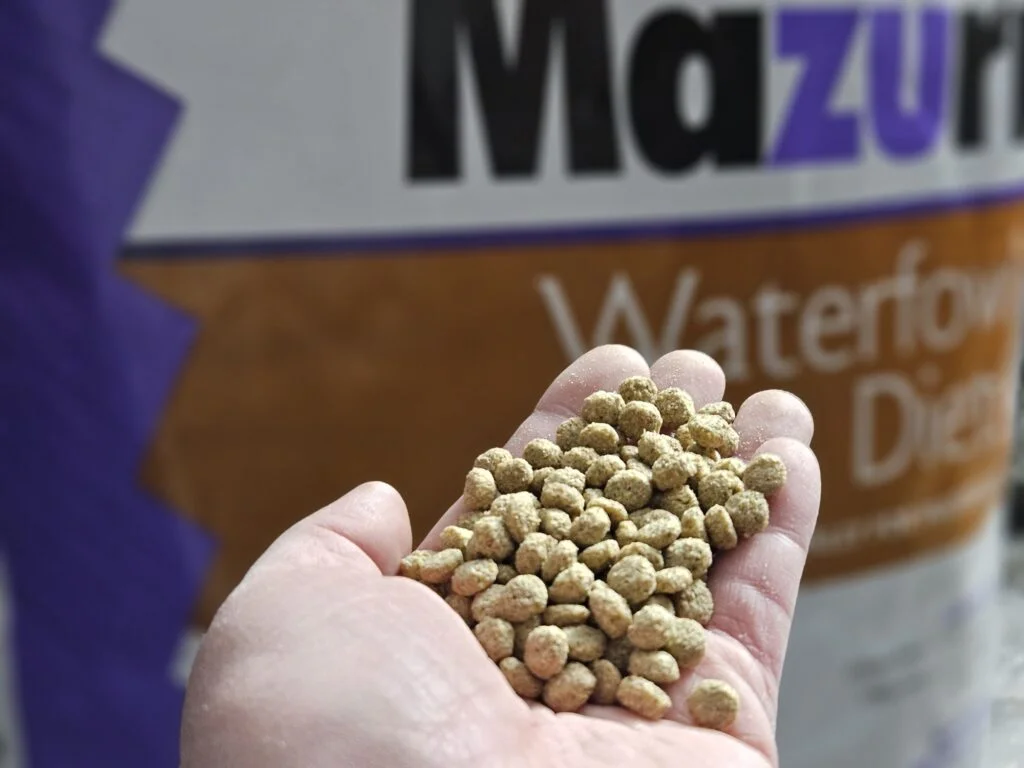
2. Fresh Vegetables and Treats:
In addition to commercial feed, you should supplement your ducks’ diet with fresh vegetables and occasional treats. Leafy greens like lettuce, cabbage, and kale are good options, as are cucumbers, peas, and corn.

Treats such as mealworms, cracked corn, or small amounts of fruits can be given in moderation—budget an additional $50 to $150 monthly for fresh vegetables and treats.
A 5 lb bag of mealworms or grubs can easily cost $40 to $60. For our flock of 7 ducks, we spend on average $2 per day for fresh veggies.

Black Soldier Fly Larvae
Grubs, aka BSL (black soldier fly larvae), are rich in proteins and fats and boast significantly higher calcium content than mealworms. They serve as a natural powerhouse for ducks. They promote optimal health and vibrant plumage, making them an essential treat for our feathered friends to thrive happily! We’re excited to offer you an exclusive discount on Grub Terra Products. Simply use code Providence10 to save 10% on your first order with Grub Terra (the discount works for their other products as well).
3. Calcium Supplements:
Ducks require calcium for egg production and bone health. Providing crushed oyster shells or a similar calcium supplement is essential, especially for laying ducks. A 5 lb bag of crushed oyster shells typically costs around $10 to $20 and can last several weeks, depending on the size of your flock and their calcium needs.
Oyster Shells
Calcium is vital in developing and maintaining strong bones and eggshells in ducks. As a valued Ducks of Providence community member, we’re excited to offer you an exclusive discount on Scratch and Peck Oyster Shells. Use code providence15 to save 15% on your first order with Scratch and Peck (the discount also works for their other products).

4. Pet Ducks Need Lost of Water:
Fresh, clean water is essential for ducks at all times, not only for drinking but also for swimming and bathing. Ducks enjoy splashing around in pools, which helps keep their feathers clean and aids in their natural behaviors.
While the cost of water itself is minimal, you’ll need to budget for waterers or containers to provide drinking water and fill and maintain their pools. Waterers explicitly designed for poultry or water bowls or buckets range in price from $10 to $30, depending on size and design.
Additionally, consider the cost of filling their pools, which may vary depending on factors such as pool size and local water rates. Providing ample water for both drinking and swimming ensures the health and well-being of your ducks and enhances their quality of life.

Total Estimated Monthly Pet Duck Cost for Feeding and Nutrition:
Let’s calculate the estimated monthly feeding and nutrition costs for both a flock of 5 ducks and a flock of 10 ducks:
| Item | Flock of 5 Ducks | Flock of 10 Ducks |
|---|---|---|
| Commercial Duck Feed | $20 – $30 | $40 – $60 |
| Fresh Vegetables and Treats | $50 – $70 | $100 – $150 |
| Calcium Supplements | $10 – $15 | $15 – $25 |
| Water (Drinking and Pool) | $10 – $20 | $20 – $40 |
| Total Estimated Monthly Cost | $90 – $135 | $175 – $275 |
This includes the estimated monthly cost for water, covering both drinking water and water for their pools. Actual costs may vary depending on factors such as water usage rates, the size of the pools, and regional prices for water.
These are rough estimates, and actual costs may vary depending on factors such as the size of your flock, dietary preferences, and regional prices. It’s essential to provide a balanced diet to ensure the health and well-being of your ducks.
Cost of Pet Duck Maintenance:
Maintaining ducks involves ongoing expenses to ensure their health, comfort, and well-being. Here’s an overview of the leading maintenance costs associated with duck ownership:
- Bedding Material: Providing clean and comfortable bedding is essential for ducks, especially in their coop or shelter. Common bedding options include straw, hay, or wood shavings. Budget around $20 to $40 per month for bedding material, depending on the size of your coop and the type of bedding used.
- Housing Maintenance: Regular maintenance of the duck housing is necessary to ensure it remains safe, secure, and weatherproof. This may include repairs to fencing, roofing, or flooring and regularly cleaning and disinfecting the coop—budget for occasional maintenance costs, which can vary depending on the condition and size of the housing.
- Miscellaneous Supplies: Other miscellaneous supplies may be needed for duck maintenance, such as cleaning supplies, tools, and equipment for grooming or handling ducks—budget for these additional expenses as needed based on your specific requirements and preferences.

Cost of Pet Duck Healthcare
The cost of healthcare for ducks can vary depending on several factors, including the need for routine veterinary care and potential medical emergencies. Here’s an overview of the potential healthcare costs for ducks:
1. Routine Veterinary Care:
Ducks may require periodic check-ups to monitor their health and address any concerns. However, it’s important to note that avian veterinarians specializing in treating birds, including ducks, can be rare and unavailable in all areas. The cost of routine veterinary visits can vary depending on factors such as the veterinarian’s fees, the geographic location, and the specific services provided. Expect to budget around $100 to $150 for a basic check-up, excluding any additional treatments or medications.

2. Medical Emergencies:
Ducks, like any other animals, may experience medical emergencies that require immediate attention. The cost of emergency veterinary care can vary widely depending on the severity of the condition, the treatments needed, and whether specialized care or hospitalization is required. Emergency veterinary visits can range from $100 to $1,000 or more, depending on the situation.
3. Medications and Treatments:
In addition to veterinary care, ducks may require medications or treatments for various health issues, such as infections or injuries. The cost of medications can vary depending on the type of medication, dosage, and duration of treatment. Budget around $20 to $50 for common medications, although costs can be higher for specialized treatments or prescriptions.
4. First Aid Kit:
A first aid kit specifically for ducks is essential for promptly addressing minor injuries and health issues. A basic first aid kit for ducks may include items such as wound cleaning supplies, antiseptic solution, bandages, gauze pads, and a pet carrier. The cost of a first aid kit can vary depending on the contents and where you purchase it. Expect to budget around $100 to $300 for a basic duck first aid kit. If you want to learn more about this topic, head over to our post 29 Must-have Items for Your Pet Duck First Aid Kit

Duck First Aid Kit
Whether you’re a seasoned duck keeper or just starting your quacking journey, having reliable first aid supplies on hand is essential. Don’t wait until an emergency strikes—be prepared and proactive in safeguarding the health of your feathered companions.
Overall, while avian veterinarians may be rare, budgeting for healthcare costs is essential for responsible duck ownership. Regular veterinary care, prompt treatment of medical emergencies, and having a well-equipped first aid kit can help ensure the health and well-being of your ducks.
Additional Expenses for Pet Ducks:
Beyond the essentials, there are other potential expenses to ensure your ducks’ safety, happiness, and well-being. Here are some additional aspects to take into account:
- Predator-Proofing Measures: Protecting your ducks from predators is crucial for their safety, especially if you live in an area with wildlife or roaming pets. Investing in predator-proofing measures such as sturdy fencing, predator-resistant coops, and predator deterrents like motion-activated lights, cameras, or sound devices can help keep your ducks safe. While the initial cost of these measures may vary depending on your specific needs and the size of your property, it’s a worthwhile investment to safeguard your flock.
- Enrichment Toys and Activities: Ducks are intelligent and curious animals that benefit from mental stimulation and enrichment. Providing enrichment toys and activities can help prevent boredom and encourage natural behaviors like foraging and exploring. Consider purchasing or DIY-ing toys such as floating objects in their pond, puzzle feeders, snuffle mats, or scattering treats for them to find. While the cost of enrichment toys may vary depending on the type and quantity, they are essential for promoting your ducks’ mental and physical well-being.
- Seasonal Adjustments: Ducks have specific needs that may vary depending on the season, such as temperature regulation and access to water. In colder climates, you may need to invest in heated waterers or de-icers to prevent their water from freezing during winter months. Additionally, providing shelter or additional bedding material in their coop can help keep them warm during colder weather. While these seasonal adjustments may not be immediate costs, it’s important to plan ahead and budget for them to ensure your ducks remain comfortable and healthy throughout the year.

By anticipating these additional expenses as part of your long-term duck care plan, you can ensure that you’re adequately prepared to provide the best possible care for your feathered friends. Investing in predator-proofing measures, enrichment toys, and seasonal adjustments demonstrates your commitment to the well-being of your ducks and enhances their quality of life.
Conclusion:
In conclusion, while pet duck ownership costs involve initial investments and ongoing expenses, the rewards are immeasurable. The joy of watching your ducks waddle, swim, and quack their way through life is truly priceless. Understanding and planning for the financial aspects can ensure a fulfilling and sustainable relationship with your feathered friends.
So, fellow duck enthusiasts, are you ready to take the plunge into pet duck ownership? Share your thoughts and experiences in the comments below, and let’s continue our quacking journey together!
Related Posts:
- 29 Must-have Items for Your Pet Duck First Aid Kit
- Pet Ducks: The Ultimate Guide to Keeping and Caring for Them
- Essential Nutritional Needs of Ducks: A Complete Overview
- What do Pet Ducks Eat? A Guide to a Healthy and Nutritious Pet Duck Diet
- Ducks and Water: Keeping Your Flock Happy and Healthy
- How to keep ducks safe from predators?
- Super Easy DIY Duck House
- Building a Hoop Coop for Ducks with Cattle Panels
- 7 Must-Have Pet Duck Accessories

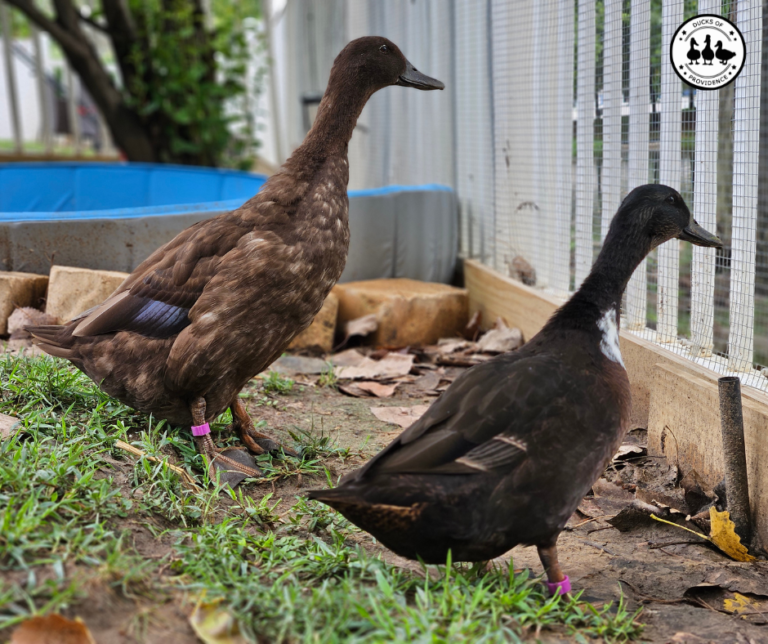
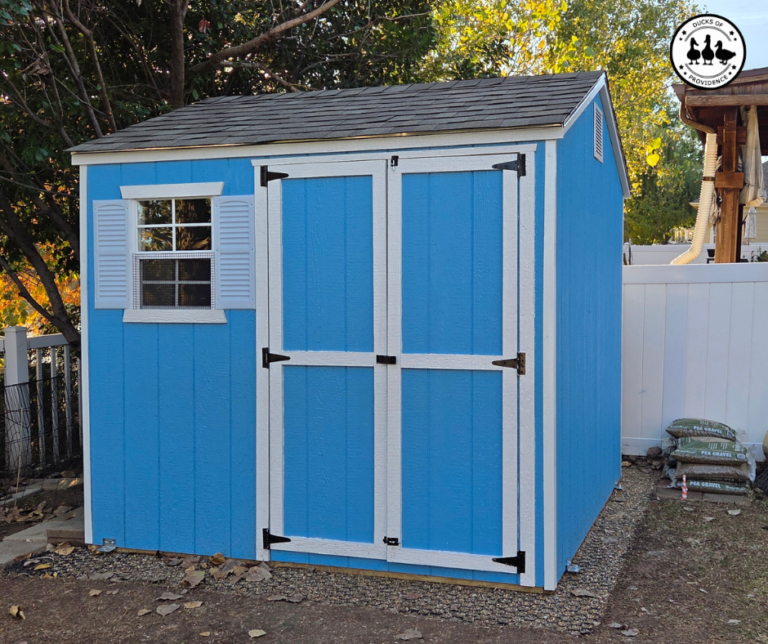
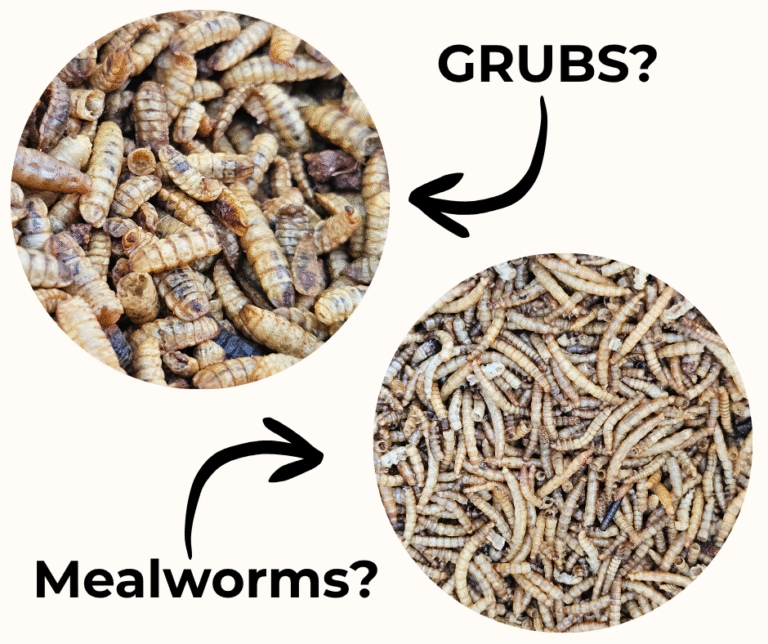
What an insightful post! I never realized how much goes into owning a pet duck. The breakdown of costs was especially helpful. I’m definitely considering adding a little quacker to my family now!
Great post! I never realized how many factors go into the total cost of owning a pet duck. The breakdown of expenses was super helpful. I might consider adding a feathered friend to my family now!
This post on the costs of owning a pet duck is incredibly informative! I never realized how much goes into their care beyond just the initial purchase price. The breakdown of food, housing, and veterinary costs is super helpful. I’m definitely considering adding a duck to my family now, thanks for the insights!
I never considered the hidden costs of owning a pet duck before reading this! The breakdown of expenses was super helpful. It’s good to know what to expect financially. Thanks for shedding light on Quackonomics!
This post was surprisingly informative! I never realized how many factors go into the cost of owning a pet duck. I especially appreciated the breakdown of initial setup versus ongoing expenses. Can’t wait to see what other quirks come with duck ownership!
This post was super informative! I had no idea how many factors go into the cost of owning a pet duck. I especially loved the section on their diet and habitat needs. It’s clear that they require more commitment than I initially thought! Thanks for shedding light on this unique pet choice!
This was such an informative read! I had no idea there were so many costs involved in caring for a pet duck. The breakdown of expenses was really helpful. I’m considering getting one, and your insights definitely gave me a lot to think about. Thanks for sharing!
This post was incredibly insightful! I had no idea how much it actually costs to care for a pet duck. Your breakdown of expenses was super helpful and I’ve definitely learned a lot about what to expect if I decide to bring a feathered friend into my home. Thanks for sharing!
This was such an interesting read! I had no idea how much goes into caring for a pet duck. Your breakdown of the costs was super helpful, especially for someone considering adding a feathered friend to their family. Thanks for sharing your insights!
This post was so informative! I had no idea how many factors go into the cost of owning a pet duck. The breakdown of initial and ongoing expenses was particularly helpful. I’m definitely considering adding a feathered friend to my household now!
Great post! I’ve always been curious about the costs associated with owning a pet duck, and your breakdown was super helpful. I had no idea about the regular expenses for food and habitat maintenance. Thanks for shedding light on this quirky pet ownership!
Great post! I had no idea about the hidden costs of owning a pet duck. Your breakdown of expenses is super helpful for anyone considering adding one to their family. I’m definitely more informed now!
This was such an enlightening read! I never realized how many hidden costs there are when it comes to owning a pet duck. The breakdown of food, housing, and healthcare really opened my eyes. I might just have to rethink adding one to my family! Thanks for sharing these insights!
This was such an eye-opening read! I never realized how many hidden costs come with owning a pet duck. The breakdown of expenses is super helpful for prospective duck owners. Thanks for shedding light on the realities of Quackonomics!